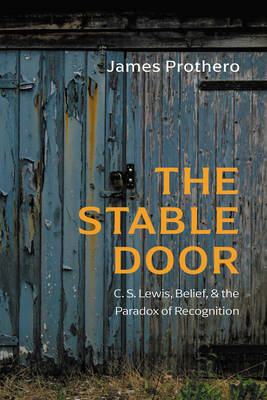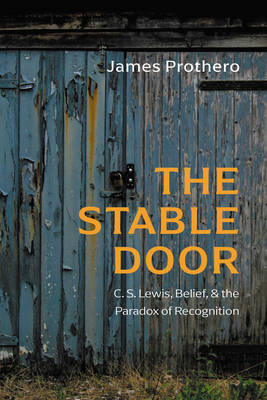
Bedankt voor het vertrouwen het afgelopen jaar! Om jou te bedanken bieden we GRATIS verzending (in België) aan op alles gedurende de hele maand januari.
- Afhalen na 1 uur in een winkel met voorraad
- In januari gratis thuislevering in België
- Ruim aanbod met 7 miljoen producten
Bedankt voor het vertrouwen het afgelopen jaar! Om jou te bedanken bieden we GRATIS verzending (in België) aan op alles gedurende de hele maand januari.
- Afhalen na 1 uur in een winkel met voorraad
- In januari gratis thuislevering in België
- Ruim aanbod met 7 miljoen producten
Zoeken
The Stable Door
C. S. Lewis, Belief, and the Paradox of Recognition
James Prothero
Paperback | Engels
€ 20,95
+ 41 punten
Uitvoering
Omschrijving
Why is it that some of us feel a strange stirring in our hearts when we read about Aslan? Why did some of us think of him as Christlike even before he dies for Edmund? Why do we read the Gospels, and as C. S. Lewis said, encounter a person, or perhaps a personality, of overwhelming familiarity? Lewis called this "Recognition," and explored how this Recognition, though still an inexplicable mystery, inhabits the unknown theological space between predestination and universalism. When in the Gospel of John, Jesus says, "My sheep know me," just what does that mean? The disciples on the road to Emmaus caught a lesson in Old Testament prophecy, but they only made sense of it when they recognized Jesus. Did C. S. Lewis underpin his Christology on this mysterious tug many of us feel in our hearts?
Specificaties
Betrokkenen
- Auteur(s):
- Uitgeverij:
Inhoud
- Aantal bladzijden:
- 70
- Taal:
- Engels
Eigenschappen
- Productcode (EAN):
- 9798385258321
- Verschijningsdatum:
- 25/09/2025
- Uitvoering:
- Paperback
- Formaat:
- Trade paperback (VS)
- Afmetingen:
- 140 mm x 216 mm
- Gewicht:
- 95 g

Alleen bij Standaard Boekhandel
+ 41 punten op je klantenkaart van Standaard Boekhandel
Beoordelingen
We publiceren alleen reviews die voldoen aan de voorwaarden voor reviews. Bekijk onze voorwaarden voor reviews.









